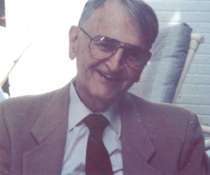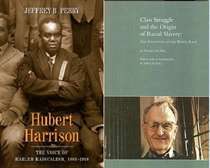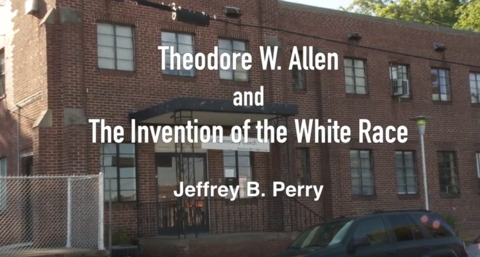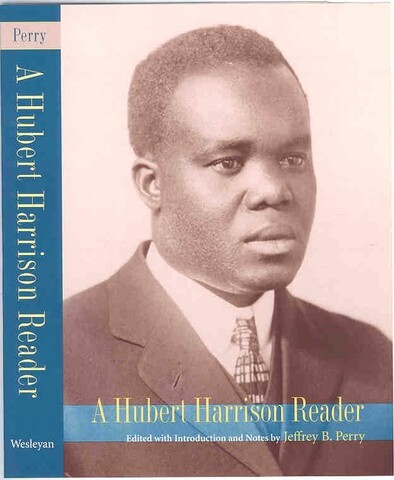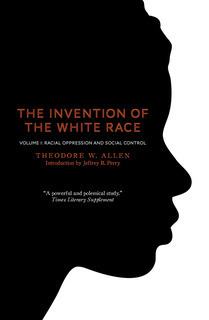“Father of Harlem Radicalism” and
Founder of the First Organization and First Newspaper of the Militant “New Negro Movement”
by Jeffrey B. Perry
Hubert H. Harrison (April 27, 1883-December 17, 1927) was a brilliant writer, orator, educator, critic, and radical political activist. Historian Joel A. Rogers, in World’s Great Men of Color, described him as “perhaps the foremost Afro-American intellect of his time.” Civil rights and labor leader A. Philip Randolph, described Harrison as “the father of Harlem Radicalism.” Bibliophile Arthur Schomburg, outstanding collector of materials on people of African descent, eulogized at Harrison’s Harlem funeral that he was “ahead of his time.”
Harrison’s views on race and class profoundly influenced a generation of “New Negro” militants including the class radical A. Philip Randolph and the race radical Marcus Garvey. Considered more race conscious than Randolph and more class conscious than Garvey, Harrison is a key link to two great trends of the Black Liberation Movement – the labor and civil rights trend associated with Martin Luther King, Jr., and the race and nationalist trend associated with Malcolm X. (Randolph and Garvey were important links to King marching on Washington, with Randolph at his side, and to Malcolm (whose father was a Garveyite preacher and whose mother wrote for the “Negro World”), speaking militantly and proudly on street corners in Harlem.
Harrison was not only a political radical, however. Rogers described him as an “Intellectual Giant and Free-Lance Educator,” whose contributions were wide-ranging, innovative, and influential. He was an immensely skilled and popular orator and educator who spoke and/or read six languages; a highly praised journalist, critic, and book reviewer (who reportedly started "the first regular book-review section known to Negro newspaperdom"); a pioneer Black activist in the freethought and birth control movements; and a bibliophile and library builder and popularizer who was an officer on the committee that helped develop the 135th Street Public Library into what has become known as the internationally famous Schomburg Center for Research in Black Culture.
Harrison was born on Estate Concordia, St. Croix, Danish West Indies, on April 27, 1883. His mother was an immigrant worker from Barbados and his father, who had been born enslaved in St. Croix, was a plantation worker.
In St. Croix Harrison received the equivalent of a ninth grade education, learned customs rooted in African communal traditions, interacted with immigrant and native-born working people, and grew with an affinity for the poor and with the belief that he was the equal to any other. He also learned of the Crucian people’s rich history of direct-action mass struggles including the successful 1848 enslaved-led emancipation victory; the 1878 island-wide “Great Fireburn” rebellion (in which women such as “Queen Mary” Thomas played prominent roles); and the general strike of October 1879.
After the death of his mother Harrison traveled to New York as a seventeen-year-old orphan in 1900. In his early years in New York he attracted attention as a brilliant high school student, authored over a dozen letters that were published in the New York Times, involved in important African American and Afro-Caribbean working class intellectual circles, and became a freethinker.
In the United States Harrison made his mark by struggling against class and racial oppression, by helping to create a rich and vibrant intellectual life among African Americans, and by working for the enlightened development of the lives of those he affectionately referred to as “the common people.” He consistently emphasized the need for working class people to develop class-consciousness; for “Negroes” to develop race consciousness, self-reliance, and self-respect; and for all those he reached to challenge white supremacy and develop an internationalist spirit and modern, scientific, critical, and independent thought as a means toward liberation.
A self-described “radical internationalist,” Harrison was extremely well-versed in history and events in Africa, the Caribbean, Asia, the Mideast, the Americas, and Europe and he wrote and lectured indoors and out (he was a pioneering soapbox orator) on these topics. More than any other political leader of his era, he combined class-consciousness and anti-white supremacist race consciousness in a coherent political radicalism. He opposed capitalism and imperialism and maintained that white supremacy was central to capitalist rule in the United States. He emphasized that “politically, the Negro is the touchstone of the modern democratic idea”; that “as long as the Color Line exists, all the perfumed protestations of Democracy on the part of the white race” were “downright lying” and “the cant of ‘Democracy’” was “intended as dust in the eyes of white voters”; that true democracy and equality for “Negroes” implied “a revolution . . . startling even to think of”; and that “capitalist imperialism which mercilessly exploits the darker races for its own financial purposes is the enemy which we must combine to fight.”
Working from this theoretical framework, he was active with a wide variety of movements and organizations and played signal roles in the development of what were, up to that time, the largest class radical movement (socialism) and the largest race radical movement (the “New Negro”/Garvey movement) in U.S. history. His ideas on the centrality of the struggle against white supremacy anticipated the profound transformative power of the Civil Rights/Black Liberation struggles of the 1960s and his thoughts on “democracy in America” offer penetrating insights for social change efforts in the twenty-first century.
Harrison served as the foremost Black organizer, agitator, and theoretician in the Socialist Party of New York during its 1912 heyday; spoke at Broad and Wall Streets in front of the New York Stock Exchange in 1912 on socialism for over three hours to an audience that extended as far as his voice could reach (in a clear precursor to “Occupy Wall Street”); was the only Black speaker at the historic Paterson silk workers strike of 1913; founded the first organization (the Liberty League) and the first newspaper (The Voice) of the militant, race-conscious, World War I-era “New Negro” movement and led a giant Harlem rally that protested the white supremacist attacks on the African American community of East St. Louis, Illinois (which is only twelve miles from Ferguson, Missouri) in 1917; edited "The New Negro: A Monthly Magazine of a Different Sort" (“intended as an organ of the international consciousness of the darker races – especially of the Negro race”) in 1919; wrote "The Negro and the Nation" in 1917 and "When Africa Awakes: The 'Inside Story' of the Stirrings and Strivings of the New Negro in the Western World" in 1920; and served as the editor of the Negro World and principal radical influence on the Garvey movement during its radical high point in 1920.
After leaving the "Negro World" and becoming a U.S. citizen in 1922, Harrison wrote and lectured widely. He published in the "Amsterdam News," "Interstate Tattler," "Modern Quarterly," "New Republic," "Nation," "New York Times," "New York Tribune," "Boston Chronicle," "New York World," "Negro Champion," "Opportunity," and the "Pittsburgh Courier." He also lectured for the New York City Board of Education from 1922-1926; served as the New York State Chair of the American Negro Labor Congress and taught World Problems of Race at the Workers (Communist) Party’s Workers’ School and at the Institute for Social Study in Harlem; and spoke at universities, libraries, community forums, and street corners throughout New York City, as well as in New Jersey, Indiana, Illinois, and Massachusetts. Maintaining his political independence, he worked with Democrats, the Single Tax Movement, Virgin Island organizations, the Farmer Labor Party Movement, and Communists. A bibliophile and advocate of free public libraries, he was also a founding officer of the committee that helped develop the “Department of Negro Literature and History” of the 135th Street Public Library into a center for Black studies, subsequently known as the Schomburg Center for Research in Black Culture. In addition, though he was a trailblazing book reviewer and literary critic during the period known as the Harlem Renaissance, he questioned the “Renaissance” on its willingness to accept standards from “white society” and on its claim to being a rebirth, a claim that he felt ignored the steady flow of works by “Negro” writers since 1850.
In 1924 Harrison founded the International Colored Unity League (ICUL), which emphasized “Negro” solidarity and self-support, advocated “race first” politics, and sought to enfranchise “Negroes” in the South. The ICUL attempted “to do for the Negro the things which the Negro needs to have done without depending upon or waiting for the co-operative action of white people.” It urged that “Negroes” develop “race consciousness” as a defensive measure, be aware of their racial oppression, and use that awareness to unite, organize, and respond as a group. Its economic program advocated cooperative farms, stores, and housing, and its social program included scholarships for youth and opposition to restrictive laws. The ICUL program, described in 1924 talks and newspaper articles and published in "The Voice of the Negro" in 1927, had political, economic, and social planks urging protests, self-reliance, self-sufficiency, and collective action and included as its “central idea” the founding of “a Negro state, not in Africa, as Marcus Garvey would have done, but in the United States” as an outlet for “racial egoism.” It was a plan for “the harnessing” of “Negro energies” and for “economic, political and spiritual self-help and advancement.” It preceded a somewhat similar plan by the Communist International by four years. The journalist and activist Hodge Kirnon from Montserrat was one of the ICUL officers and in 1924 Harrison and Rogers spoke on behalf of the organization in the Midwest and in New England.
In 1927 Harrison edited the International Colored Unity League’s "Embryo of the Voice of The Negro" and then "The Voice of the Negro" until shortly before his unexpected December 17 death at Bellevue Hospital in New York from an appendicitis-related condition. His funeral was attended by thousands and preceded his burial in Woodlawn Cemetery in the Bronx, a gift of his portrait for placement on the main floor of the 135th Street Public Library, and the (ironic) establishment of The Hubert Harrison Memorial Church in Harlem in his honor.
Hubert Harrison lived and died in poverty. In 2015, after eighty-seven years, a beautiful tombstone was placed on his shared and previously unmarked gravesite. His gravesite marker includes his image and words drawn from Andy Razaf, outstanding poet of “New Negro Movement” – speaker, editor, and sage . . . “What a change thy work hath wrought!” That commemorative marker, as well as the notable increase in books, articles, videos, audios, and discussions on his life and work reflect a growing recognition of his importance and indicate that interest in this giant of Black history will continue to grow in the twenty-first century and that Hubert Harrison has much to offer people today.
Dr. Jeffrey B. Perry is an independent, working class scholar and archivist who was formally educated at Princeton, Harvard, Rutgers, and Columbia University. He was a long-time rank-and-file activist, elected union officer with Local 300, and editor for the National Postal Mail Handlers Union (div. of LIUNA, AFL-CIO). Perry preserved and inventoried the Hubert H. Harrison Papers (now at Columbia University's Rare Book and Manuscript Library); edited of A Hubert Harrison Reader (Wesleyan University Press, 2001); authored Hubert Harrison: The Voice of Harlem Radicalism, 1883-1918 (Columbia University Press, 2008); wrote the introduction and notes for the new, expanded edition of Hubert H. Harrison, When Africa Awakes: The “Inside Story” of the New Negro in the Western World (1920; Diasporic Africa Pres, 2015); and wrote the new introduction and supplemental material for the expanded edition of Theodore W. Allen, The Invention of the White Race, 2 vols. (1994, 1997; Verso Books, 2012). He is currently working on volume two of the Hubert Harrison biography and preparing his vast collection of Theodore W. Allen Papers and Research Materials on Hubert Harrison for placement at a major repository.
For comments from scholars and activists on "Hubert Harrison: The Voice of Harlem Radicalism, 1883-1918" (Columbia University Press) see HERE
and see HERE
For information on "A Hubert Harrison Reader" (Wesleyan University Press) see HERE
For information on the new, Diasporic Africa Press expanded edition of Hubert H. Harrison's “When Africa Awakes: The 'Inside Story’ of the Stirrings and Strivings of the New Negro in the Western World” see HERE
For a video of a Slide Presentation/Talk on Hubert Harrison see HERE
For articles, audios, and videos by and about Hubert Harrison see HERE
For a link to the Hubert H. Harrison Papers at Columbia University’s Rare Book and Manuscript Library see HERE
Read More
